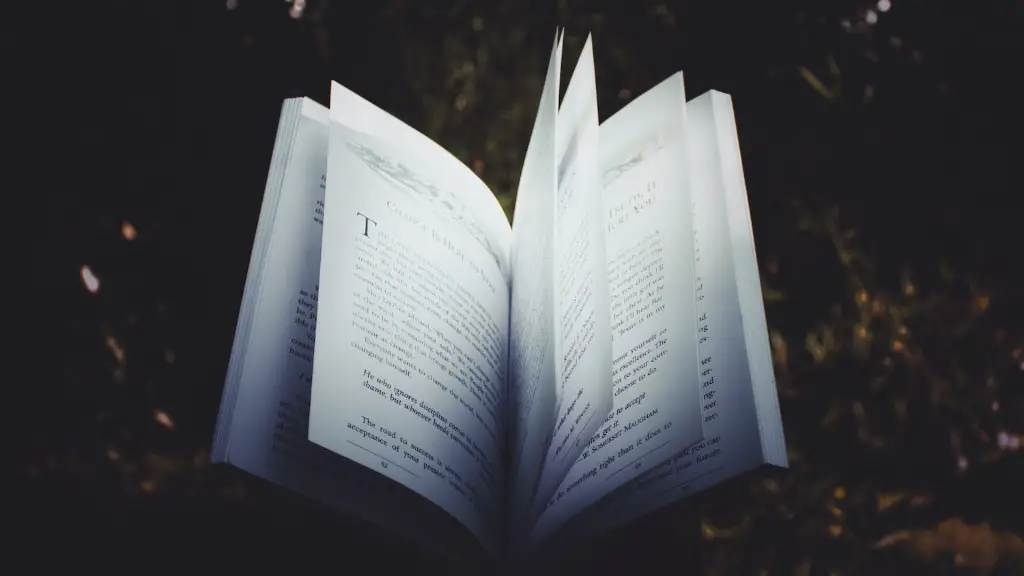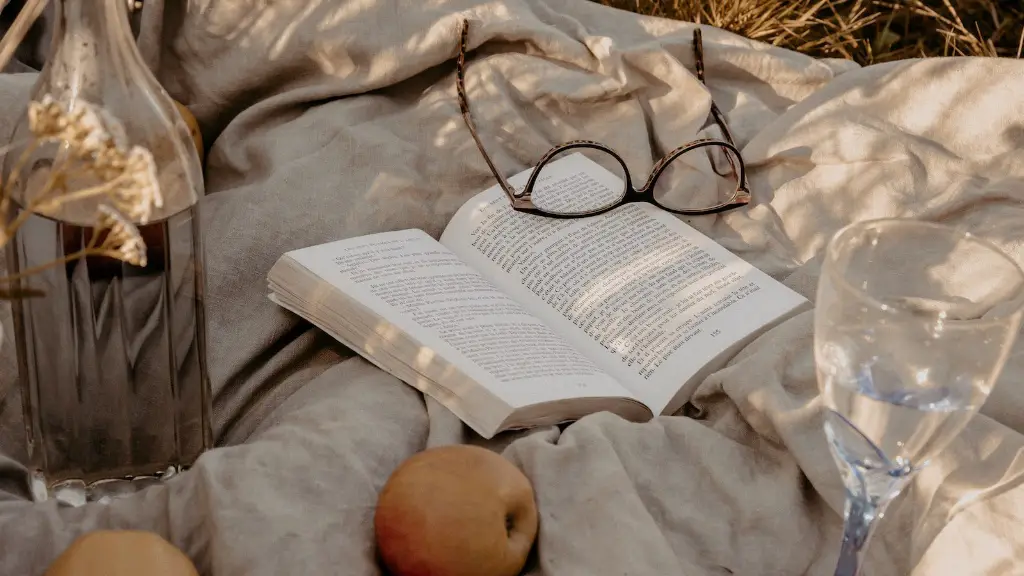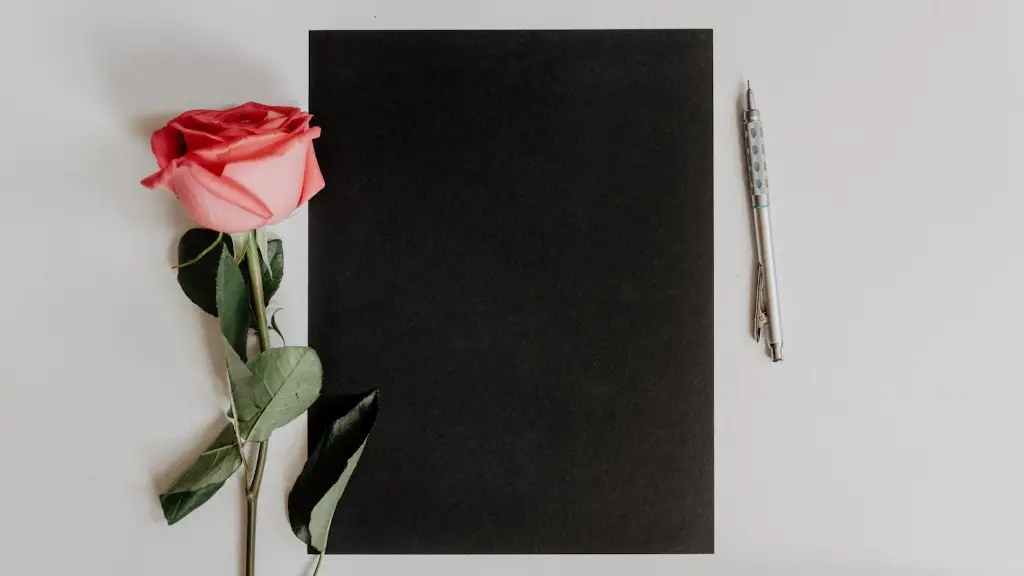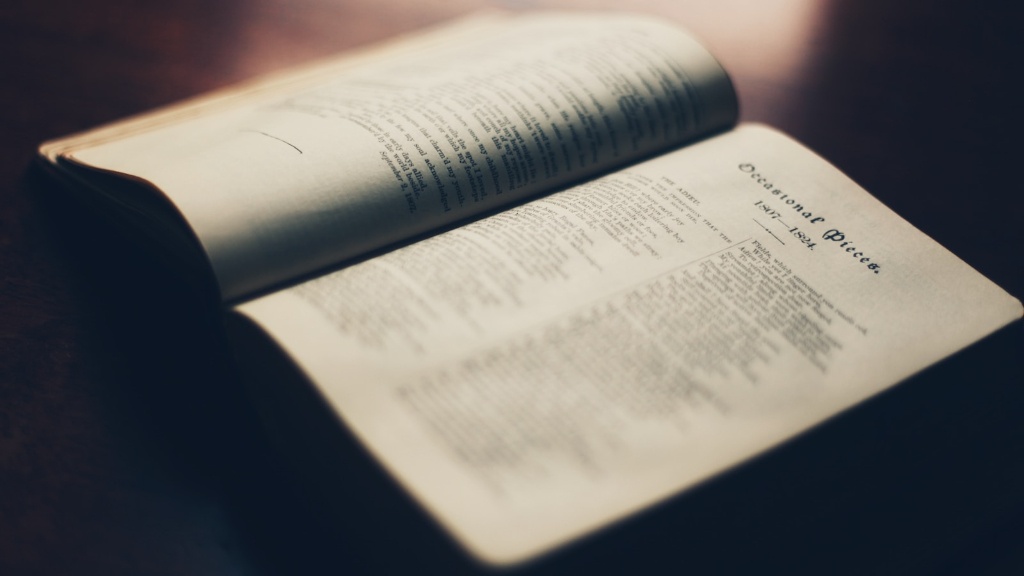How to Cite Poetry MLA In-Text
When writing an essay or other written work, it is important to cite any sources referenced in the text in order to give credit to the original author/s. This is also true when referencing poetry. However, the conventions for citing poetry references in-text can be complex. This guide aims to make citing poetry easier by explaining the convention used by the Modern Language Association (MLA) style.
When citing a poem, the title of the poem should be referred to in the text, either in quotation marks or italicized, depending on the context. For example, “The Road Not Taken” can be referred to as either “The Road Not Taken” or The Road Not Taken. When using quotation marks, the first letter of the poem title should be capitalized. If the poem title is not mentioned in the text, the parenthetical (in-text) reference should include the author’s last name and the line number(s) from the poem. For example, (Frost 31). If the poem is authored by an anonymous poet, the parenthetical reference should include the title of the poem and the line number(s). For example, (“The Road Not Taken” 31).
In the text, when referencing a passage from a poem, the line number should be included in parentheses. For example, “He took the road less traveled by” (Frost 21). If the line numbers in the poem are divided into part (a) and (b) or (1) and (2), the reference should thus include this division. For example, “He took the road less traveled by” (Frost 21a-21b). The line number should not be included in the reference if the poem does not have line numbers.
It is also important to list the poem in the Works cited page. The Works cited entry should include the full poet name, title of the poem, titles of any anthologies or collections, the editor, publisher, year, and the format of either print or online. In an anthology, if a poem is authored by a poet with the same last name, you should include the first initials of the poet’s first and middle name in the parenthetical reference to avoid confusion.
This guide has focused on the MLA style, but other citation styles, such as the American Psychological Association (APA) and Chicago, may have different rules and conventions. To avoid errors, it is always best to consult the style manual relevant to the citation style you are using.
Understanding the Poem
In order to accurately cite a poem, it is important to understand the context of the poem. What is the poem about? Who wrote it? What collections have it been in? Knowing this information will help you create an accurate and complete reference list.
It also helps to read through the poem to understand how the poem is structured. This will help you identify the relevant line number(s) when forming your in-text citation in the MLA style. If you’re having trouble understanding the poem, it can help to read the poem aloud or research the poem and its author.
Accurately Citing Sources
Accurately citing sources is an important habit to get into. If you’re unfamiliar with the proper style for citing poetry, it can be helpful to consult an instruction manual for the style you are using. In addition, there are several online resources that can help you understand the correct way to cite poetry in MLA format, such as the Purdue OWL (Online Writing Lab).
It can also be helpful to create a template for each source you use. This will help you correctly cite your sources every time. Citing sources is not only the correct thing to do, it also proves to the reader that you have done your research and helps you avoid accidentally plagiarizing.
Creating an Annotated Bibliography
Creating an annotated bibliography is a great way to keep a record of the sources you have used when you are researching and writing an essay or other written work. An annotated bibliography includes MLA in-text citations, as well as a brief description of each source and how it is relevant to your topic. An annotated bibliography will save you time when you come to actually cite your sources later, as you can just refer to the annotated bibliography entry instead of having to look up all the information again.
Using Citation Generators
If you’re having trouble understanding MLA in-text citations for poetry, or you’re struggling to remember all of the formatting conventions, you can make your life easier with a citation generator such as CiteThisForMe. These generators will help you create accurate, complete citations for your sources. All you need to do is enter the relevant information and the generator will do the rest.
Quoting Poetry in an Essay
When quoting a poem in your essay or paper, it is important to cite not just the line numbers you are referring to, but also include the page numbers. This is because page numbers are often not included in line numbers in poetry. For example, (Frost 21-22, p.3). If you’re quoting a passage of four or more lines, use a block quotation instead of in-line quoting.
If you’re quoting a passage of three or fewer lines of poetry, you should use in-line quotations. When quoting in-line, use double quotation marks and include the page number(s) in the parenthetical (in-text) reference. For example, “He took the road less traveled by” (Frost 22, p.3).
Creative Writing
Creative writing exercises can be a great way to practice and develop your understanding of poetry and poetic citation conventions. A great exercise is to write a poem and then cite the poem using both in-text and Works cited entries. This exercise can help improve your understanding of both creative and academic writing in terms of citation styles.
Another great exercise is to read a poem and then comment on the style, structure and content. This can be done in essay form or as a free-writing exercise. This exercise can help you gain a better understanding of how to analyse poetry and identify key information, such as the lines numbers, that you need to accurately cite the poem.
Proofreading
Proofreading and editing are important steps when it comes to referencing poetry in an essay or other written work. This is especially important if you are using MLA in-text citations as the formatting conventions can be complex. It is also important to proofread for other errors, such as typos, spelling mistakes, and incorrect grammar. Proofreading can help to identify any errors and improve the overall presentation of your essay.
It can also help to have someone else proofread your essay. Ask your teacher or classmate to check your essay for errors and provide feedback. This can be an invaluable tool when it comes to improving your writing.




